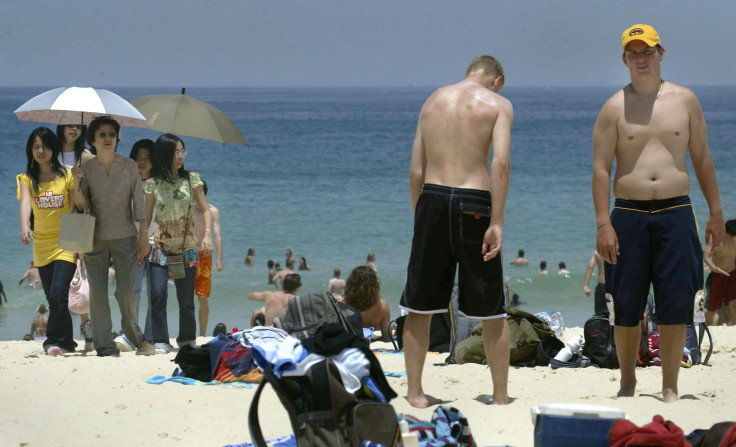Sunscreen kills coral reefs worldwide, scientists reveal

While using sunscreen helps prevent sunburn and protects humans against cancer, it contains toxic materials that kill coral reefs around the world, says a team of international scientists.
In a study that appeared in the journal Archives of Environmental Contamination and Toxicology, the researchers discovered that high concentrations of oxybenzone, a common UV-filtering compound, is found in the waters around popular coral reefs of Hawaii and the Caribbean. In addition to killing the corals, the chemical causes DNA damage in adults and deforms the DNA in coral in the larval stage, making it unlikely to develop properly.
“Coral reefs are the world’s most productive marine ecosystems and support commercial and recreational fisheries and tourism. In addition, reefs protect coastlines from storm surge. Worldwide, the total value of coral reefs is tremendous. And they are in danger,” said diving enthusiast John Fauth, one of the study’s authors and a professor in the University of Central Florida.
For the study, the team collected samples from reefs in Hawaii, the U.S. Virgin Islands and Eilat, Israel by diving into the water themselves. They then exposed coral larvae and cells of adult corals to increasing concentrations of oxybenzone. The team found that oxybenzone deforms coral larvae by trapping them in their own skeleton, making then unable to float with currents and disperse.
According to the study’s authors, oxybenzone also resulted in coral bleaching, which is a major cause of coral mortality worldwide. Coral bleaching occurs when corals lose or expel the algae that normally live inside them, leading to the loss of a valuable source of nutrition.
The team also discovered that coral larvae exposed to increasing oxybenzone concentrations suffered more DNA damage. Cells from seven species of corals were killed by oxybenzone at concentrations similar to those detected in ocean water samples. Three of these species are considered to be threatened and are under the U.S. Endangered Species Act.
Based on their experiment, the researchers concluded that oxybenzone is a hazard to coral reef conservation and threatens the resiliency of coral reefs to climate change.
“The use of oxybenzone-containing products needs to be seriously deliberated in islands and areas where coral reef conservation is a critical issue. We have lost at least 80 percent of the coral reefs in the Caribbean,” said lead author Craig Downs, who is also the executive director and researcher of the non-profit scientific organisation, Haereticus Environmental Laboratory, in Virginia.
Since the highest concentrations of oxybenzone were found in reefs most popular with tourists, Fauth advises divers to wear rash guards or scuba wetsuits and skip all the hygienic products when they go diving.
This is not the first study that discussed the hazardous impact of sunscreen on coral reefs. In 2008, scientists at Marche Polytechnic University in Ancona, Italy revealed that up to 10 percent of coral reefs, including the Great Barrier Reef, are in danger of bleaching because of chemicals in sunscreens. Up to 6,000 tonnes of sunscreen wash off swimmers annually in oceans worldwide, according to an article published in The Telegraph.
According to the report, many brands of sunscreen are found to contain ingredients that can stimulate viruses in the algae, known as zooxanthellae, which live within corals. Zooxanthellae are important in providing the vibrant colour associated with corals by supplying food energy through photosynthesis.
Contact the writer at feedback@ibtimes.com.au or tell us what you think below.




















